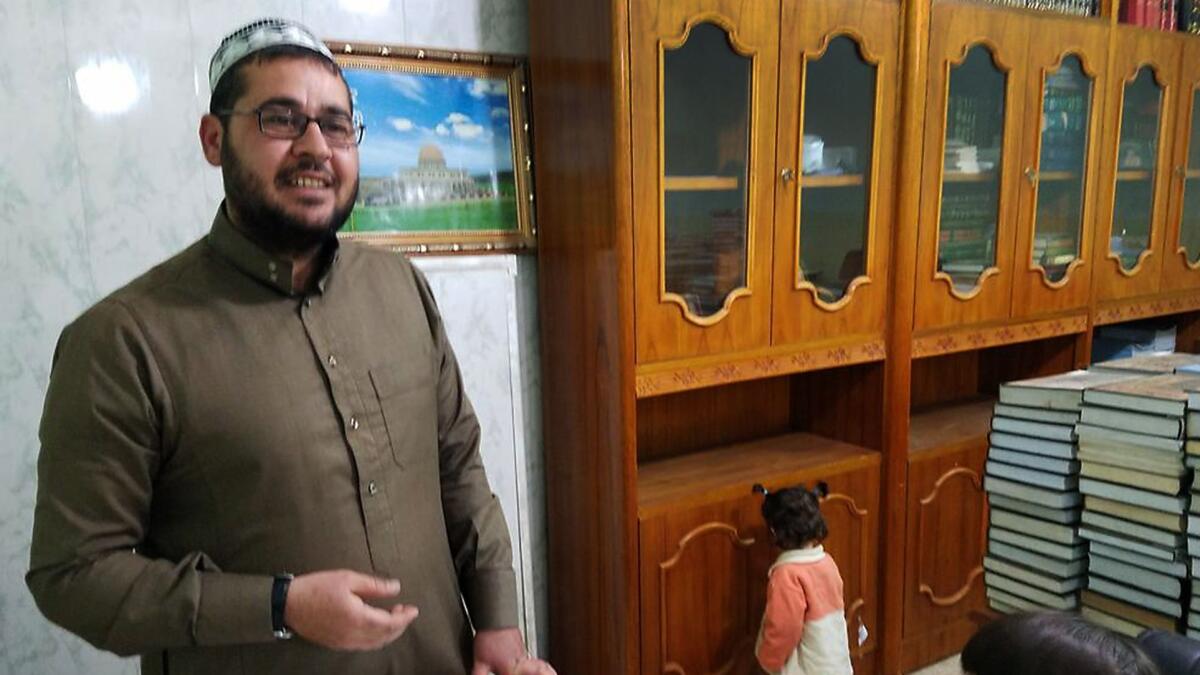Iraqis relieved to be left off Trump’s new travel ban

- Share via
IRBIL, Iraq — Abu Hasan never understood why the U.S. travel ban issued by the Trump administration in January included Iraq, which has been a key ally in the battle against Islamic State militants.
“The order was wrong, wrong, wrong,” said the militia commander fighting alongside the Iraqi military to oust the extremist group from the city of Mosul. “We are defending not just Iraq but the world against Islamic State.”
Like other Iraqis interviewed since President Trump signed a revised immigration order Monday, Abu Hasan said he was pleased that his country has been removed from the list.
The new order halts the issuing of new visas to people from Iran, Libya, Somalia, Sudan, Syria and Yemen for 90 days while the government reviews its vetting procedures. Unlike the first order, which was blocked by court challenges, it does not apply to green-card holders or people who already have visas.
The White House was under pressure from both the State and Defense departments to remove Iraq from the list. Thousands of U.S. forces have been in Iraq since last fall, assisting the Iraqi-led coalition that has been battling Islamic State in Mosul since the fall.
A fact sheet detailing the new order cited negotiations that resulted in Iraq agreeing to “increase cooperation with the U.S. government on the vetting of its citizens applying for a visa to travel to the United States.”
The original travel ban upset many Iraqis. The parliament called for a reciprocal ban on Americans, but the prime minister rejected the idea.
Ahmed Galadi, 30, a soldier with the Interior Ministry’s emergency response division in west Mosul, said the original ban was especially misguided when it came to Iraqis working with the Americans.
“We are the guys who want to make Iraq better,” he said.
A father of two, he worked with U.S. forces for years and has paid a steep price. In 2009, his twin brother was killed while driving his car, shot in the head by a militia member who mistook him for Galadi. Scores of other Iraqis who worked with the U.S. were killed in his hometown of Diwaniya, south of Baghdad, he said.
“My family doesn’t know I’m working with Americans now,” he said. “If they did, they would say, ‘Once the Americans go, where will you go? Because the militias will kill you.’”
He wants the option of fleeing to the U.S. if needed, especially for his wife, 12-year-old son and 7-year-old daughter. He was encouraged by the new order.
Imam Ahmed Rakan Ahmed, 30, also welcomed the removal of Iraq from the ban. But he was said it did nothing to address the most pressing problems in east Mosul, where he runs a mosque.
He and his family had fled the city after Islamic State took over but returned in December and reopened the mosque, after the militants were driven out of his neighborhood.
Many of the families it serves are poor, but they have been gathering donations for those worse off as fighting has shifted to the city’s west side.
“What’s important for us is what’s happening on the west side of Mosul, those displaced people who are suffering,” the Muslim spiritual leader said as the call to prayer sounded.
He said the U.S. should have stayed long enough after the 2003 invasion of Iraq to prevent Islamic State from forming. “America is responsible,” he said. “It’s their duty to protect us.”
Others were more enthusiastic about the revision to the order.
“Thank God!” said Zryan Ibrahim, who lives in the northern city of Sulaymaniya and wants to attend a six-week exchange program in the U.S. and, later, graduate school there. She worried that the original ban would have quashed those plans.
Rachel Ramey, an 33-year-old American teacher living in Sulaymaniya with her Iraqi husband, said she was glad the ban was revised. Her husband had applied for a visa almost a year ago.
The couple married two years ago and planned to move to the U.S. and start a family.
Even with Iraq off the list, Ramey remained nervous about the vetting process.
“What if we get to the airport and have everything together and they say, ‘No, we’re denying you’?” she said.
Twitter: @mollyhf
Special correspondent Nabih Bulos in Amman, Jordan, contributed to this report.
More to Read
Sign up for Essential California
The most important California stories and recommendations in your inbox every morning.
You may occasionally receive promotional content from the Los Angeles Times.











